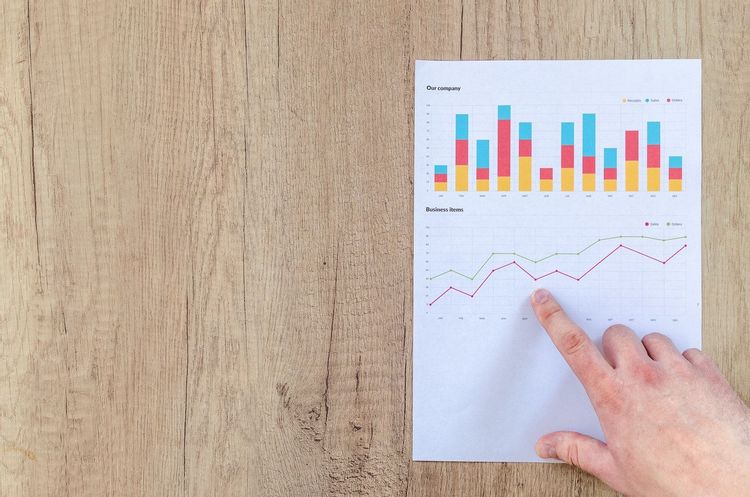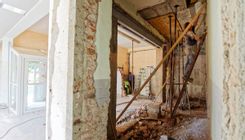Comparative Market Analysis (CMA): Determine Your Home's Value


by Tyler Forte
If you’re considering selling your home in the near future, you’ve probably started thinking about how much you could sell it for. While you may have tried out some online home value estimators like Zillow Zestimates or even the Free Home Value Report found on our website, most of these tools won’t provide you with the most accurate estimate of your home’s value.
Although these estimates are often a good starting point, they shouldn’t be taken at face value. This is because their algorithms only take into consideration the data that’s available to them while overlooking critical factors like your home’s condition, unique features, and location that only a human can evaluate.
In reality, the best way to determine how much your home is worth is by conducting a Comparative Market Analysis or CMA. To do this, you’ll want to work with an experienced Realtor who understands your local market.
PRO TIP: Schedule a free listing consultation + CMA with Felix Homes.
What Is A Comparative Market Analysis?
A Comparative Market Analysis is a method of estimating a home’s value based on recent sales of similar properties in the same area. The CMA is a tool used by real estate agents to help them determine what a property is worth. They do this by assessing the features of your property and finding “comps” or comparable properties that are similar to your own.
It’s important to note that a CMA is just one method for determining a property’s value. There are two other methods that are also used: Replacement Cost and the Income Approach. Generally, the Replacement Cost method would be used for historic homes where the cost of the materials is very high or new construction homes where the costs of the materials are known. The Income Approach is typically used for investment properties and estimates the value of a property based on the income it generates.
What Should A Comparative Market Analysis Include?
When all is said and done, a Comparative Market Analysis will likely include at least three to four comparable properties. These properties should share similar features to your own home, have recently sold, and be in close proximity to your home. The analysis will include the sold price of the properties along with a proposed listing price for your property. Some agents may also include other market data including days on market and pricing trends.
Can You Get A Comparative Market Analysis For Free?
Most agents will provide this service for free and it can be a great way to get a sense of an agent’s work before you sign up to work with them. If you understand the different components that go into creating a Comparative Market Analysis, you’ll be able to pinpoint the agents that really know their stuff when it comes to your neighborhood and the local market.
If you’re using a comps analysis as a way to interview an agent, be wary of choosing an agent solely because they provide you with the highest price. Sellers who do this usually come to find out the number wasn’t accurate, to begin with.
Is Comparative Market Analysis Accurate?
A Comparative Market Analysis is a great tool for real estate agents to determine a home’s current market value. Although they are often very accurate, it is not a guarantee that your home will sell at the price provided to you in a CMA.
The accuracy of the CMA relies heavily on the comps that are chosen. Different comps will bring about different results. That’s why it’s so important that the comps are as similar as possible and adjustments are made for unique features. This will bring about the best results. Even still, the market is always changing and the sales price of your home will likely differ from the price you asked for.
How Do You Calculate A Comparative Market Analysis?
To calculate your home’s value, you’ll want to seek the help of a licensed Realtor who understands the nuances of your local market and can provide you with an accurate estimate of your home’s worth. When conducting a Comparative Market Analysis, a Realtor should take the following steps:
1. Create a list of your property’s features
In order to find comparable properties, a Realtor will first start by identifying the basic features of your property, including:
The location (zip code, neighborhood, and/or subdivision)
-
Square footage
-
Number of bedrooms and bathrooms
-
The lot size
-
Year built
-
School district
-
Specific features (swimming pool, garage, etc.)
Once they have a good idea of these features, they’ll move on to assessing the overall location of your property.
2. Assess your neighborhood
The location of a property largely impacts its value. Properties located in close proximity to popular shopping centers or within a highly sought after school district will add value to the home, whereas properties close to a railroad or highway may decrease its value. An agent should get an idea of your neighborhood and the surrounding area before they start searching for comparables.
3. Assess your property’s condition
Aside from assessing your neighborhood, a good Realtor will take the time to visit your property in-person. A walkthrough of your property will allow them to get a clearer picture of your home’s overall condition–a factor that will affect your home’s value.
While touring your property, an agent should take note of any additions or upgrades you’ve made to your home, as well as any items that may need to be updated in the near future. Both the interior and exterior of your home should be taken into account. Other amenities, such as a gated community or proximity to desirable shopping or dining areas, should be considered.
4. Gather comparable properties
Once your property has been assessed, a Realtor will begin the process of finding comparables. Most real estate agents will use the local MLS to find comps. The MLS, or Multiple Listing Service, is a members-only site that can only be accessed by agents who are a member of their local association of Realtors.
When conducting a Comparative Market Analysis, an agent will look for homes that have recently sold and share the following similarities with your home:
-
Same number of bedrooms
-
Same number of bathrooms
-
Same number of stories
-
Similar square footage (within 200 sqft of your home’s square footage)
-
Similar price per square foot
-
Similar lot size
-
Similar location (located within a quarter-mile of your property)
-
Similar features and upgrades (pool, garage, etc.)
-
Same zip code and school district
-
Built around the same time
5. Average the price
Once they’ve found recently sold homes that fit the above criteria, they’ll typically present you with at least three comparables. The more comps, the better, but three properties is usually a good rule of thumb.
Now, are you ready to do some math? First, the agent will calculate each comps’ price per square foot. This is done by dividing its sales price by its square footage. Next, they’ll determine the average price per square foot of all the comps. Lastly, to calculate your property’s estimated value, they’ll multiply the average price per square foot by your property’s square footage.
6. Make adjustments
After an agent has come up with an estimated sales price for your home, they’ll revisit any unique features and adjust the price, if necessary. For instance, if none of the other homes have a bonus room, they may adjust the price to reflect this feature.
PRO TIP: If you’re considering making upgrades to your home, it’s important to know that the cost of the upgrade may not equal its value. For instance, if you invest $50,000 into putting in a pool, you likely won’t get that $50,000 back when you sell your home. A more realistic return on investment for a pool is $10,000. Curious what other upgrades might not get the return on investment you were hoping for? Check out this article.
About Felix Homes
Felix Homes is where five-star service meets low commissions! To date, we've saved our clients $1,610,738 in commission fees and have earned 120 five-star reviews on Google!
How are we able to offer five-star service AND lower commission fees? It's simple:
- We're an independently owned brokerage – not a franchise which allows us to keep more of the commission we earn.
- By offering a lower commission, more folks want to work with us which means we close more deals. By closing more deals, we can pass more savings along to our customers!
Still not convinced? Read all about our low-commission mission here.
If you have any questions about the state of the market or the home buying/selling process, please feel free to contact us at contact@felixhomes.com or 615-354-5731.



